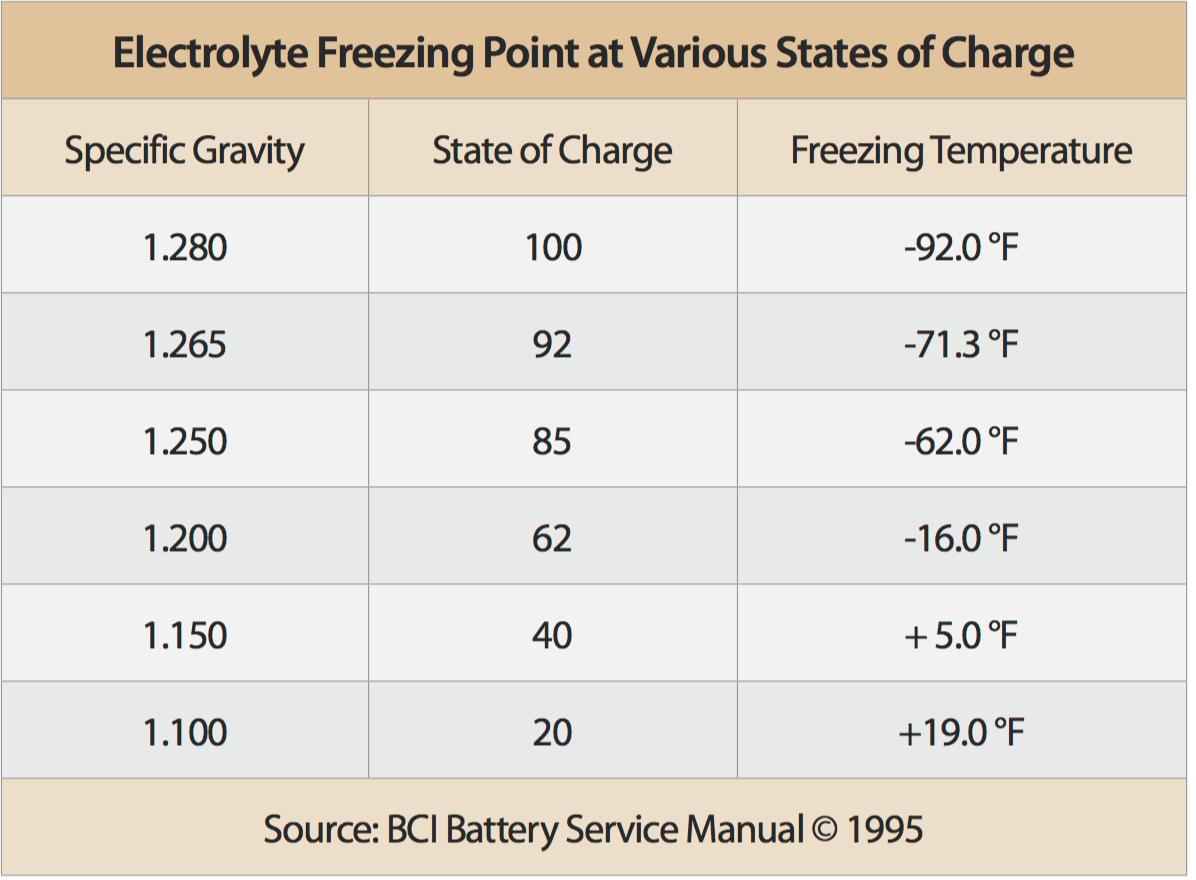Many of our buyers in states with severely cold winter temperatures are concerned about what they should do to winterize a 12-volt deep cycle battery.
Here's the good news. Basically, you don't have to do anything but keep the battery charged. According to the Trojan Battery Company, you will not have any problems with a battery freezing if it is 85% to 100% charged. Below those charge levels, in some states, you could have a problem with freezing as shown in the table below.

Freezing usually results in irreparable damage to the plates and containers, so if for some reason you can't keep your battery charged in the winter, you should store it in a warmer location. If the batteries have been in use prior to storage, they should be given a boost charge before being stored and again immediately prior to returning to service.
General Battery Care
A good deep-cycle battery should last about 6 years with proper maintenance. To get the longest battery life possible, follow these three rules:
- Recharge a deep cycle battery as soon as possible after each use to prevent sulfation.
- Recharge slowly. The absolute best method is to recharge the battery at 70° F over a 10 to 20 hour period using an external constant voltage (or tapered current charger). This method gives the acid more time to penetrate the plates.
- In warmer climates and during the summer, check the electrolyte levels and add distilled water (never tap water), if required. Never allow the electrolyte to drop below the tops of the plates. Exposed plates sulfate and become inactive. When low, add only enough water to cover the exposed plates before charging and then fill to the correct level after charge.


